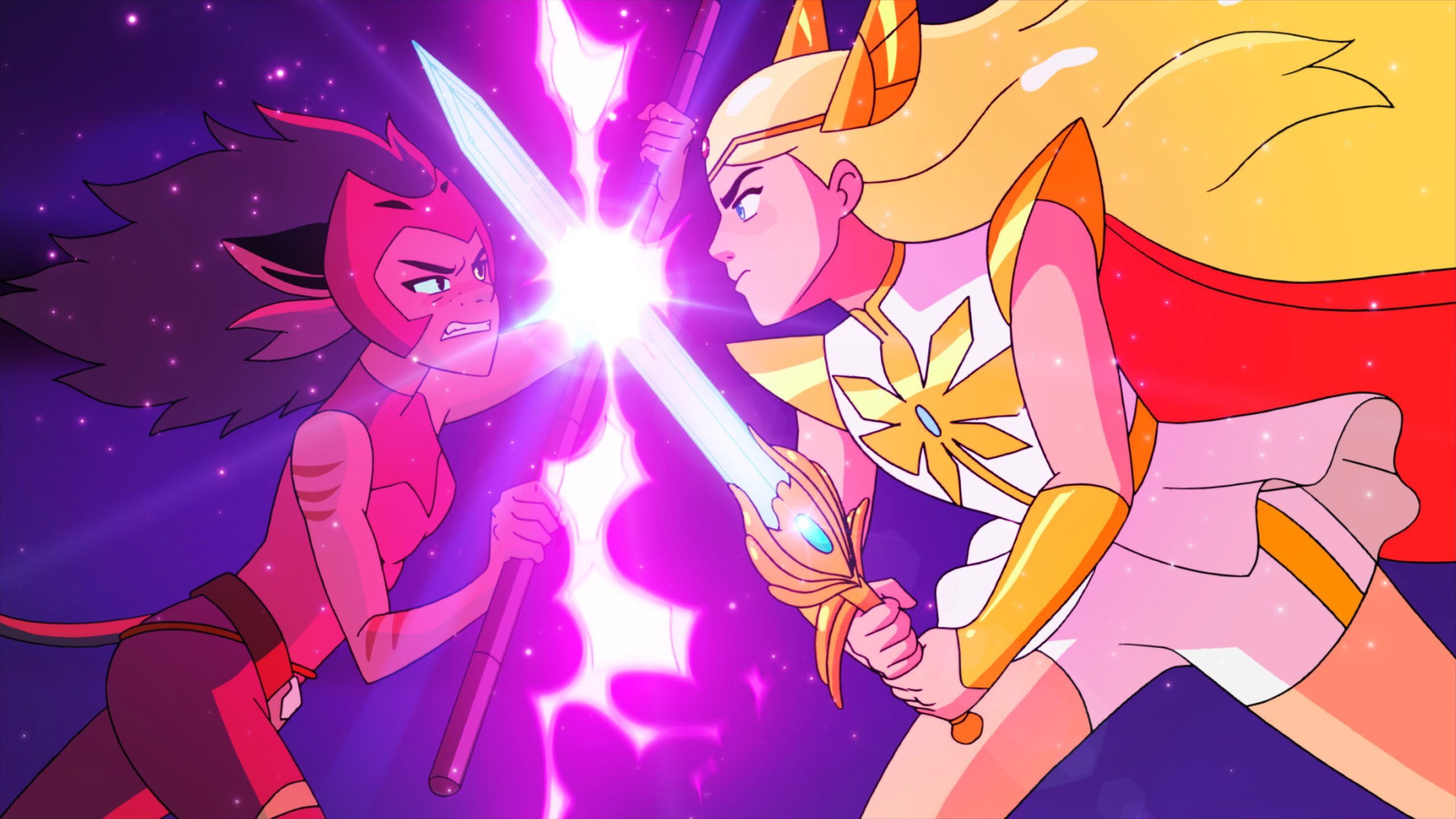This article is part of Pride Month Picks, a collection of pieces that aim to highlight queer representation across games, television, film, books, and more throughout June.
Representation isn’t a linear path. We will move forward, stumble backward, and remain in place as time passes and queer storytelling becomes more widespread. In recent years we’ve made massive strides, with entire stories built around LGBTQ+ identities that aren’t afraid to express themselves and depict people, worlds, themes, and situations we can proudly see ourselves in.
As a non-binary demisexual trans woman I’ve never felt happier that I can turn to the majority of mediums and find narrative themes and nuanced characters designed to represent the queer experience and do away with heteronormative attitudes that have been the norm for far too long. We obviously still have a long way to go.
Romances are edited out of major blockbusters to cater to international audiences while representation is still met with hostile attitudes and bigotry online. Go woke, go broke is used as a cudgel against representation, but diversity is ignored when it leads to mammoth successes. They claim we’re trying to push an agenda instead of just stating that people like us exist and we deserve to be seen, heard, and loved just like everybody else. It’s not much to ask.
Queer communities can also become toxic places, with unfair gatekeeping being placed upon how you need to look, act, or feel in order to be considered LGBTQ+ and have your validity confirmed by fools who are putting up pointless barriers in a space where we are all fighting for the same equality. Trans men or women entering same-sex relationships might be considered lesser, while non-binary people who present in a way that is traditionally masculine or feminine might be seen as seeking attention instead of taking their identity seriously. Don’t get me started on bisexual erasure either, and how ironic it is to apply labels when for all this time we’ve been fighting for fluid representation away from established norms. Enough with the infighting, enough Pick Mes, and enough punching down on representation purely because it doesn’t appeal to subjective ideals that will likely never be met.
I love how messy the queer experience is, and how we can change as we discover who we are, who we love, and where we might belong on the spectrum. People can change, and we should welcome that progress instead of seeking to question it. In mainstream media, I’ve often seen complaints leveled at representation that is too sanitised, while comments are also thrown at experiences that put queer people through needless adversity in order to have their stories told. But if these two perspectives aren’t okay, where even is the middle ground in all of this? Let’s dig into the examples themselves so you can see what I mean.
Tell Me Why follows Tyler Ronan, a trans man returning to his hometown alongside his twin sister after years away. He must revisit a traumatic past and unveil his transitioned self to friends and family he hasn’t seen in the better part of a decade. He’s a changed person, and much of the game features awkward conversations stating how much he’s changed or dealing with silent judgement from those who might not be so accepting. Unlike the majority of games, Tyler talks about taking hormones, top surgery, and how challenging yet euphoric it is to be trangender and embrace your true self. It feels real, and the overarching narrative involving his deceased mother isn’t even transphobic, despite the game leading us to believe this bigoted plotline before subverting it entirely.
Select conversations around Tell Me Why claimed it was too idyllic, with Tyler being widely accepted by those around him while also finding love if the player makes certain choices. It’s a sweet, dramatic story and one of the finest examples of trans rep we’ve seen in the medium, but it didn’t delve too deep into the weeds and somehow wasn’t enough. This perspective confuses me - were they hoping for Tyler to be hurt or deadnamed, forced into situations where his identity is brought into question and we have to deal with the consequences?
When other games take this approach with trans identity they are lambasted, as was the case with Lev in The Last of Us Part 2. Naughy Dog’s sequel leaked ahead of release, with ample controversy surrounding the death of Joel and the presence of Abby - a new character who quickly became the subject of misogynistic comments thanks to her muscular physique. Girls can only be skinny and small, anything else is a myth designed to hurt us. In an unintentional analogue for the bathroom debate, Abby (a cisgender woman) was assumed to be trans after a second leak confirmed the presence of a trans character. This turned out to be Lev, who is deadnamed, cast out because of his transness (though the word is never used), and goes through so many traumatic moments throughout the game that see him face death time and time again in search of a place to belong.
But much like Tyler, they are accepted by those who matter, with others seeking to invalidate their identity often being framed as outright villains. Yet the mere idea of putting a trans character through suffering was seen as transphobic to some, like Naughty Dog wanted to put queer characters through the ringer for the hell of it with no moral or narrative justification. You know, because all the cis characters come out of The Last of Us just peachy. Viewing both Tyler and Lev as problematic examples of trans representation not only confuses me, but stops us from moving forward and appreciating the steps we have taken for queer inclusion. Where do we start if this isn’t enough?
It isn’t just limited to video games either, with television and film also being subject to unrealistic expectations from viewers who want more without quite understanding what they're asking for. Heartstopper was a massive hit for Netflix and handled its queer characters beautifully. We saw a gay relationship between teenagers in a school setting that hadn’t really been done in such a wholesome way before, alongside lesbian and trans characters who were brought to life with silly amounts of love. Once again, some saw this show as being too wholesome, too unrealistic when put up against what it’s really like to be out and proud in a UK secondary school. Only it didn’t sugarcoat things, it wasn’t afraid to delve into the struggles of homophobia, transphobia, or the internal anxiety that accompanies accepting who you really are. It was made for a certain audience, and when taking that into consideration it’s almost perfect. But nope, gotta be more edgy.
Catra and Adora from She-Ra and the Princesses of Power was a huge step forward for sapphic relationships in animation, but fans from neighbouring fandoms like Arcane and The Owl House sought to label them as a toxic relationship that brought down queer progress instead of moving it forward. Fictional ships became pieces in the most pointless chess game in existence, used as weapons of favouritism instead of all being seen as moments of queer belonging that mean so much to so many people. We’re only hurting ourselves by taking sides here, like we even have something to fight for in all of this.
The beauty of LGBTQ+ storytelling often lies within its own imperfection. What it means to be queer and what will resonate in media is going to be different for everyone. We see ourselves in clear declarations of love and identity alongside more subtle clues and hints peppered throughout our favourite things. How we choose to interpret those will often be based on our own experiences, trauma, life lessons, and exactly where we are on our personal journeys. No one person is the same, and instead of bringing representation down to your level or holding it to an unattainable standard because it doesn’t tick discordant boxes, we are best to just roll with it and stop bickering with one another over discourse that simply isn’t worth the energy.
It’s a difficult thing to parse, since flawed representation deserves to be pointed out and critiqued, and so many inaccurate stories have been told by well-meaning (and occasionally mean spirited) cis creators with the baton only now being passed onto passionate queer people able to bring themselves into the fold. We should be there to support them, instead of drawing lines in the sand and striving for an insular cause that doesn’t even exist. We’re all in this together, whether the representation that showcases us be happy, sad, flawed, depressing, euphoric or anything in between.

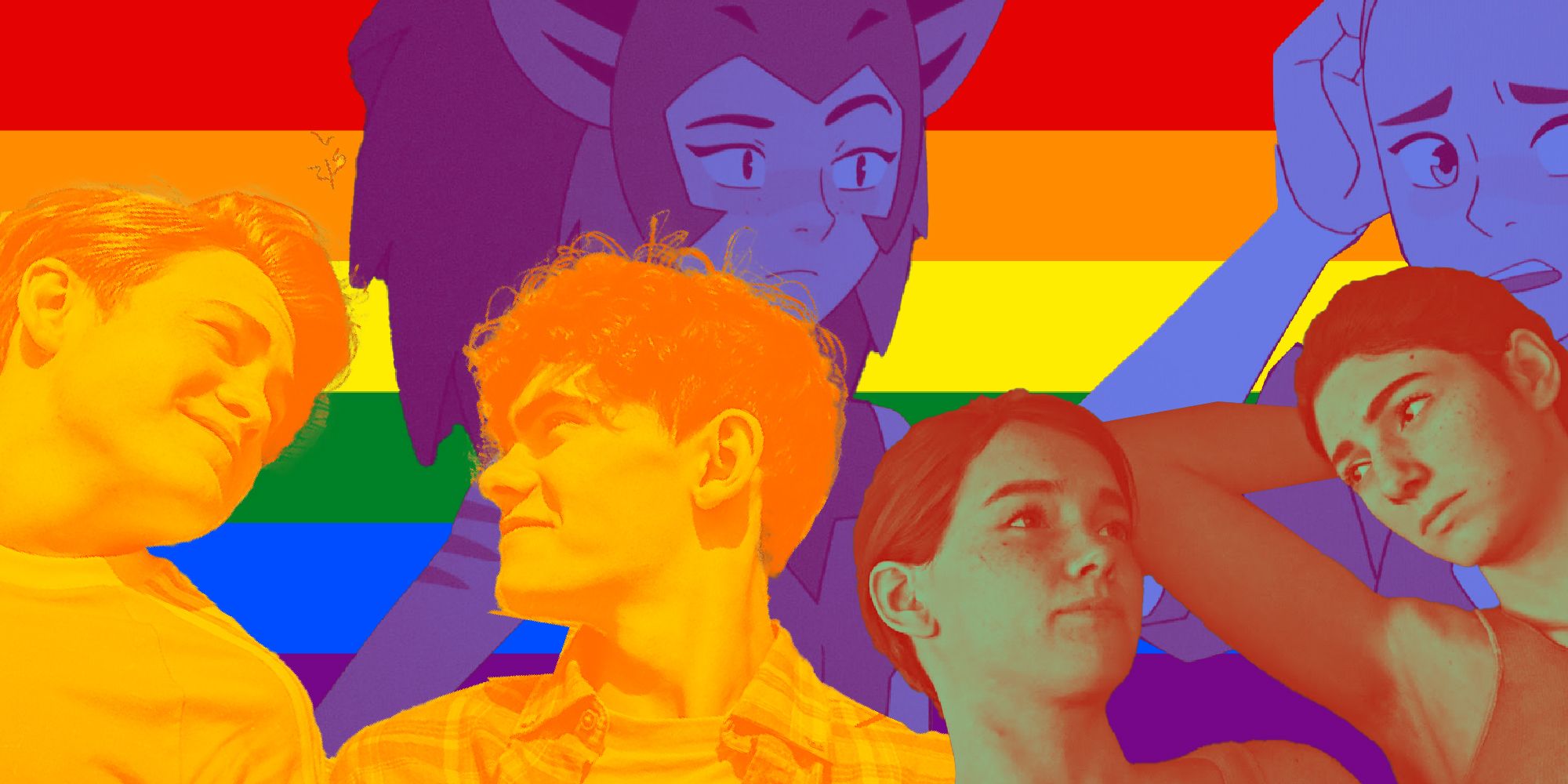
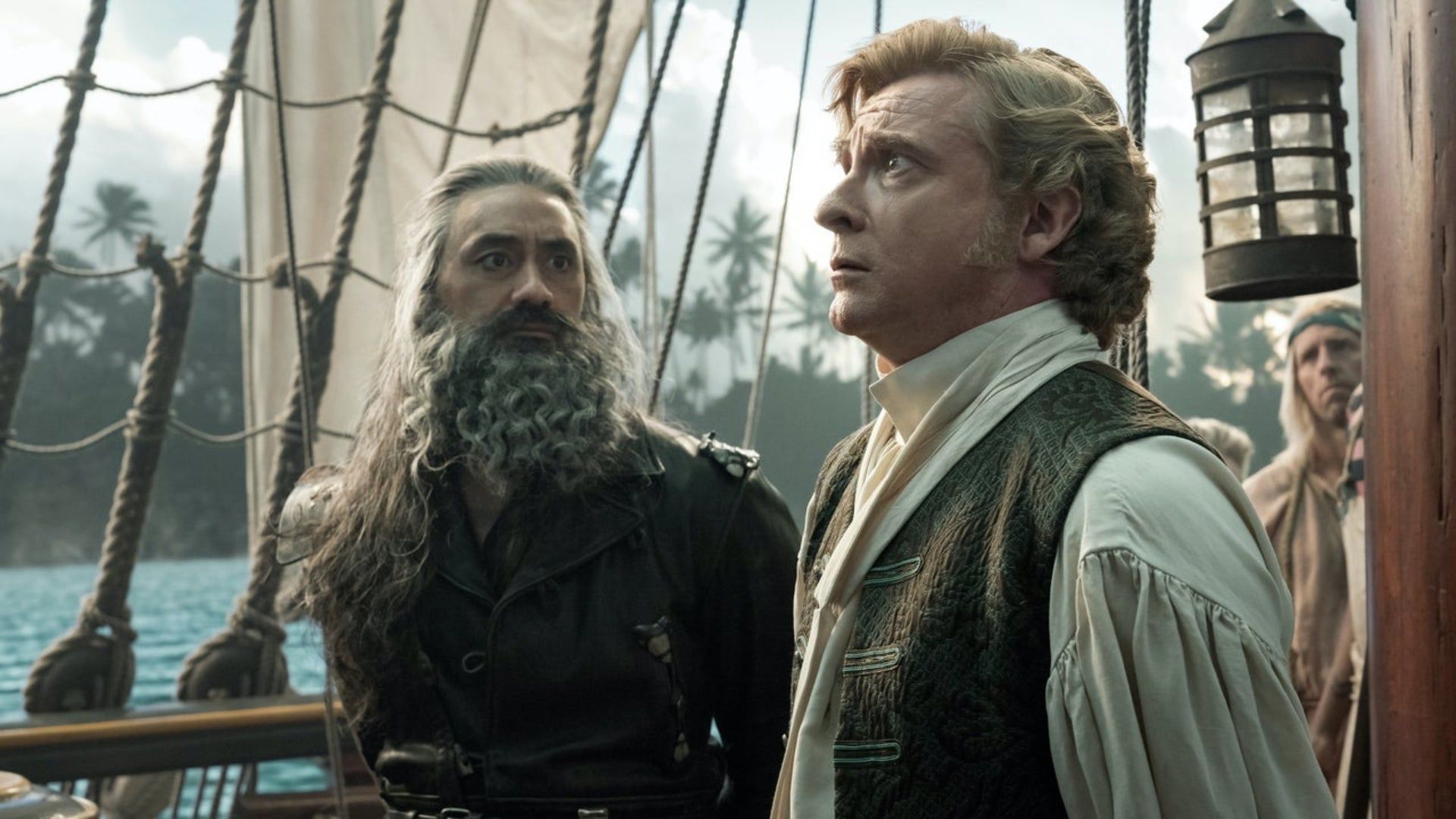
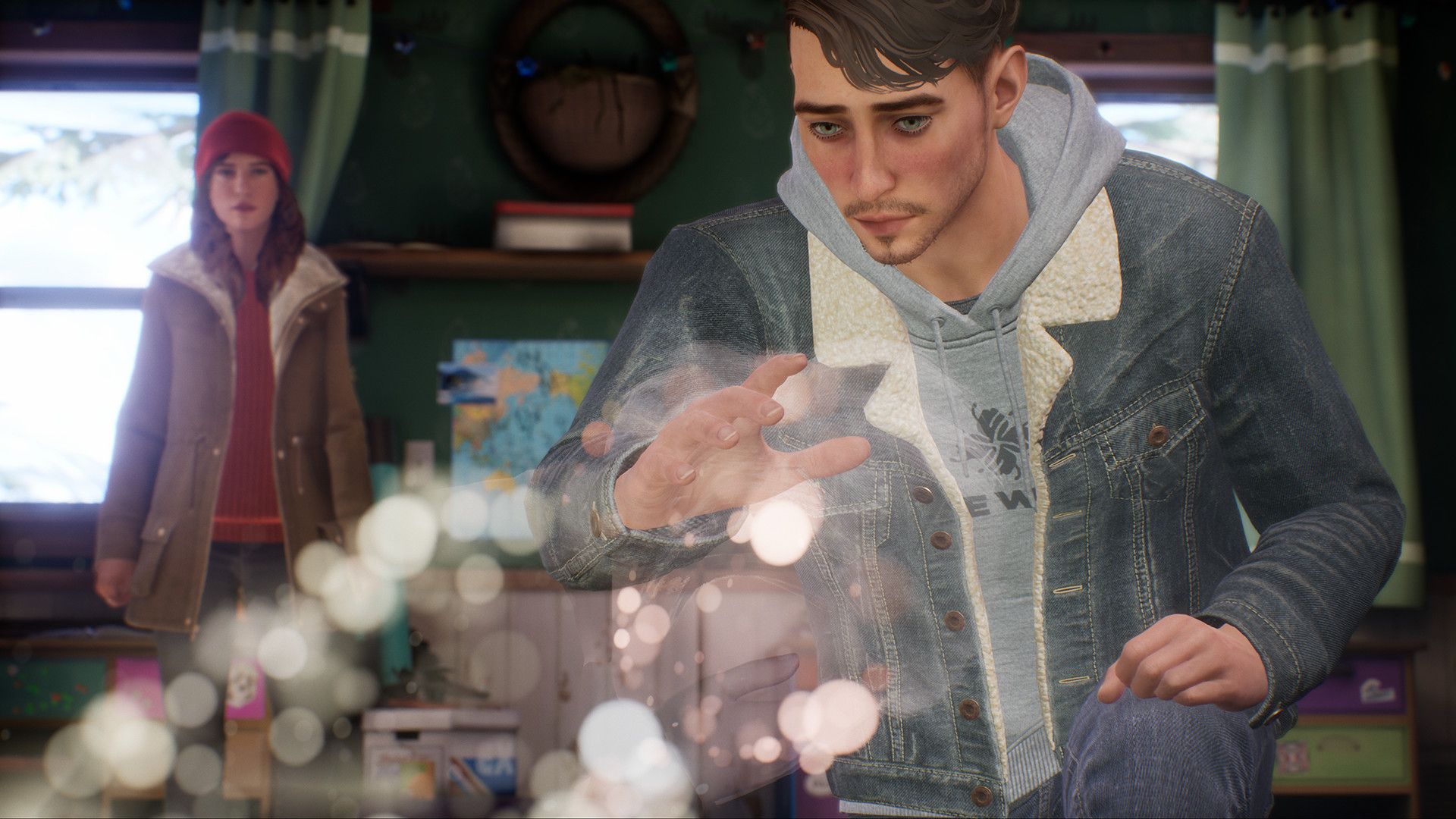
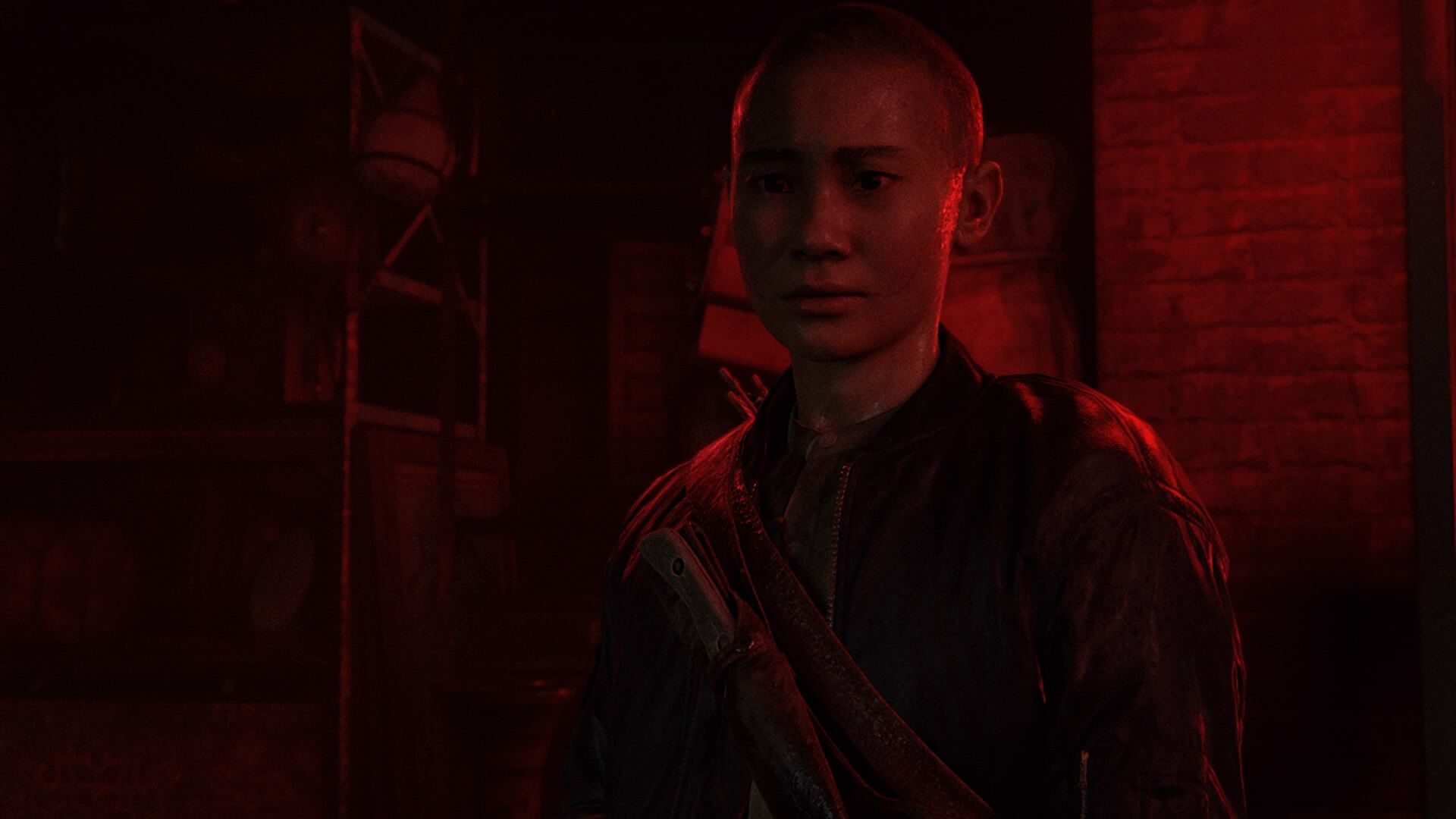
-2.jpg)
